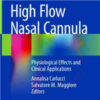Genetic Testing in Early-onset Atrial Fibrillation
academic.oup.comAtrial fibrillation (AF) is a globally prevalent cardiac arrhythmia with significant genetic underpinnings, as highlighted by recent large-scale genetic studies.
A prominent clinical and genetic overlap exists between AF, heritable ventricular cardiomyopathies, and arrhythmia syndromes, underlining the potential of AF as an early indicator of severe ventricular disease in younger individuals.
Indeed, several recent studies have demonstrated meaningful yields of rare pathogenic variants among early-onset AF patients (∼4%–11%), most notably for cardiomyopathy genes in which rare variants are considered clinically actionable.
Genetic testing thus presents a promising opportunity to identify monogenetic defects linked to AF and inherited cardiac conditions, such as cardiomyopathy, and may contribute to prognosis and management in early-onset AF patients.
A first step towards recognizing this monogenic contribution was taken with the Class IIb recommendation for genetic testing in AF patients aged 45 years or younger by the 2023 American College of Cardiology/American Heart Association guidelines for AF.
By identifying pathogenic genetic variants known to underlie inherited cardiomyopathies and arrhythmia syndromes, a personalized care pathway can be developed, encompassing more tailored screening, cascade testing, and potentially genotype-informed prognosis and preventive measures.

















